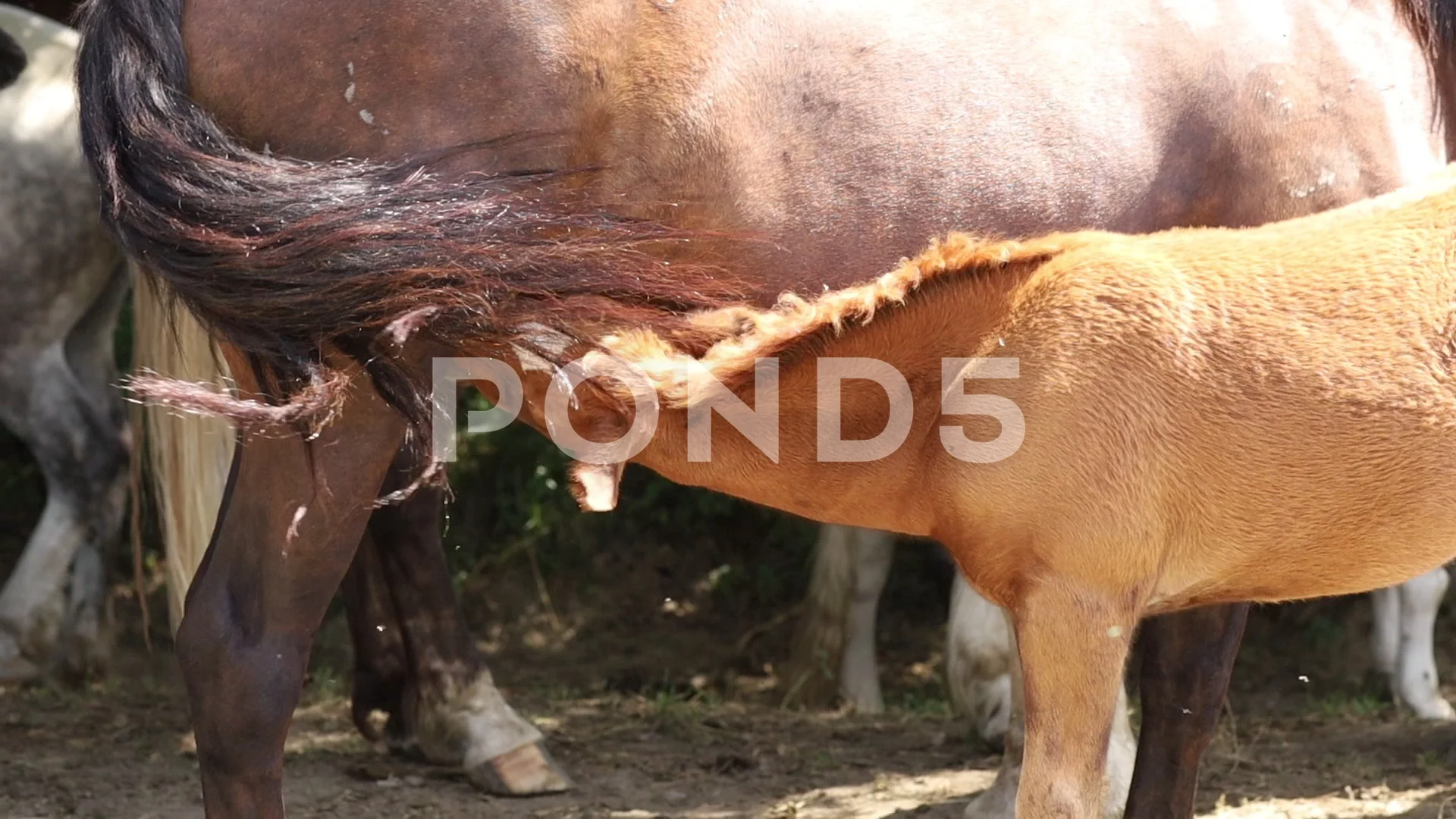Horse suck
She said it had something to do with their tasting faculty. Is this true? If not, horse suck, why do some horses engage in this behavior?
When researching horses before deciding on the perfect animal companion in your life, or even when learning more about the animals you already own and love, you may come across the problem of wind sucking. But what is wind sucking in horses, exactly? Why do horses do it? And, most importantly, are there any prevention methods, or solutions for getting them to stop? We have answered all of these questions and more in the guide below. Read on and find out everything you need to know about wind sucking and become more informed as an owner, so your animals stay as happy and healthy as possible. The act has no apparent goal, though several animal behaviourists believe it fulfils a physiological need.
Horse suck
Cribbing or crib biting is a vice in which the horse places its upper incisors on a horizontal solid surface, presses down, arches its neck and pulls back. As this occurs the horse usually makes a grunting noise and gulps air. Wind sucking may occur without the horse grasping anything with its teeth, most horses have their own manner of wind sucking. Imitation of mares by their foals was excluded as the reason for the higher incidence. Thus, inheritance of the vice, or the temperament leading to its occurrence, appears to be an increased risk factor in some cases. The cause for crib biting is unknown. These vices have also been observed to increase when a highly palatable high-grain diet is fed, perhaps because this may stimulate endorphin release, which in turn stimulates dopamine release. Cribbing, when continued over a long period, may cause wear and erosion of the upper incisors and pronounced hypertrophy of the neck muscles. In severe longstanding cases, tooth wear may progress to such an extent that the incisors no longer meet when the mouth is shut and, therefore, the horse can no longer graze. A few horses may spend so much time cribbing that feed consumption and as a result body condition and weight are decreased. However, most horses have no problems as a result of either cribbing or wind sucking; mostly it just annoys those around the horse. Because of this, some have recommended that if the horse is in good condition, ignoring it may be best. However, most horse owners prefer to try and prevent it, and other horses may mimic cribbers and wind suckers. Because of this, cribbers and wind suckers should be kept separate from other horses, but they should be provided with companionship, such as another animal. Solitary confinement will likely worsen the problem or cause others.
This in turn increases their risk of windsucking.
Best match. Most popular. RF and RM. Siblings in animal costumes playing at home. Newborn foal suckling milk.
Begin typing your search above and press return to search. Press Esc to cancel. Ideally one with a beautiful chestnut or palomino coat. Any genre, too. I prefer Clydesdales, but really any horse with a large, fully-erect cock will do. Lay newspaper on the ground horses typically have a blast radius of somewhere around 4 feet. Optional: Apply eyewear.
Horse suck
Kid lies on the floor near a colored rug and gnaws a rubber horse. High quality 4k footage. Horse foal suckling from mare in the pasture of Thailand. A mare and her offspring on green fresh meadow. Three horses are grazed on a meadow against mountains. Working Oil Pump Silhouette.
Putas españolas en oviedo
Tools Tools. Breed can also influence cribbing, which may be attributed to genetics or to the way different breeds are typically managed. Wind-sucking is a related behavior whereby the horse arches its neck and sucks air into the windpipe but does so without grasping an object. Baker, G. In a study, after ACTH injection, cribbers had higher cortisol levels than non-cribbers. By Blogger Paige Cade. Horses may begin to windsuck to increase saliva production so that the stomach pH rises, allowing ulcers and mucosal damage to heal. Applied Animal Behaviour Science. Hillyer, M. S2CID Causal factors of oral versus locomotor stereotypy in the horse. Other methods to prevent cribbing have included surgery, acupuncture, use of pharmaceuticals, operant feeding, and environmental enrichment. Am J Acupunct. Thus, inheritance of the vice, or the temperament leading to its occurrence, appears to be an increased risk factor in some cases. This leaves them unable to graze effectively.
Have you ever seen a horse with its neck arched and its tongue sticking outward?
It resonated with me, not just because the idea of that many push-ups makes me blanch, but because the training of young horses up the levels is a little bit the same way. Factors that may cause horses to begin windsucking or cribbing include: [3] [4] [12] [13] [14] [15]. Grain is emptied from the stomach more rapidly. A few horses may spend so much time cribbing that feed consumption and as a result body condition and weight are decreased. Various surgical procedures have also been used to try to prevent cribbing and wind sucking although none are recommended. Mare and foal suckling. Sign up for our weekly newsletter! Article Talk. They get itchy and trigger-happy. Need some assistance? A physiological stress response can be induced by injecting an animal with ACTH and the animal's ability to cope with this stress can be monitored by measuring salivary cortisol. Then, when the horse tries to arch its neck to crib or windsuck, pressure from the strap will cause discomfort and make them stop. Ascot Races. This will require its removal.


0 thoughts on “Horse suck”